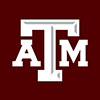Coordinators from Project Literacy-Infused Science Using Technology Innovation Opportunity (LISTO), a five-year research validation study on literacy-infused science, travelled to South Texas this summer to meet with school district personnel.
Headed by Dr. Rafael Lara-Alecio as principal investigator, LISTO is in its first year of school implementation. The purpose of the August trip was to introduce high-participation districts, including Donna, Judson, and Rio Grande City ISDs, to the project and their roles, as well as to deliver technology equipment to the schools.
“We wanted to meet our project partners face to face—to provide a thorough overview, be available for questions, and hopefully increase our partners’ comfort level with the project expectations,” said Dr. Cindy Guerrero, LISTO lead coordinator.
“The contacts and teachers were excited and really supportive,” said Dr. Sharmila Pathikonda, project coordinator.
LISTO is designed to validate a literacy-infused science instructional and curricular intervention from a previous project. LISTO project goals include increasing academic achievement in science and reading for economically challenged students; cultivating student interest in STEM fields; building science teacher instructional capacity through virtual mentoring and coaching; and reducing disparities between rural and non-rural schools. Co-principal investigators are Dr. Beverly J. Irby, Associate Dean for Academic Affairs in the College of Education & Human Development, and Dr. Fuhui Tong, associate professor of bilingual education.
“We targeted rural schools—66% of the schools in the project; We’re providing treatment schools with specialized, ongoing support in the form of virtual instructional coaching and mentoring for science teachers. We have a gradual release plan over the next four years of the project where teachers will self-reflect and self-coach on science instruction—potentially becoming a resource for their campuses and districts.”
LISTO will work with this initial group of fifth-grade science teachers over the next four years of the project. The project will also monitor this first cohort of students to see if there is an impact on science achievement from fifth to eighth grade—the grade levels where Texas students take the state science assessment.
The project includes 35 school districts, 68 schools, 121 teachers, and approximately 2,800 students.
